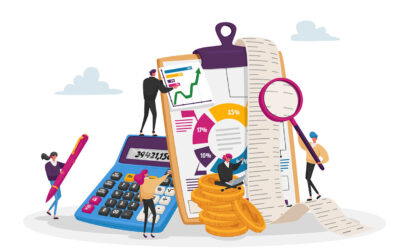If the last few years have been unpredictable, what can businesses do to survive and thrive in 2023?
If 2022 was a year of uncertainty – three budget statements in the autumn, anybody? – 2023 may well be a time where things settle down. The outlook isn’t great as recession looms, those new budget rules kick in, energy prices keep causing headaches and interest rates make borrowing more expensive, but if it’s better the devil you know, at least businesses can make plans for the “known knowns”.
Swoop’s role is always to help SMEs weather whatever the economic climate has to throw at them. Every business has different needs, and Swoop has suitably diverse expertise in house to find the best solutions for our customers.
The big questions about how 2023 will shake out will depend upon your perspective, so we gathered around the table at Swoop Towers to finish the last mince pies and look ahead into 2023 with Andrea Reynolds, Founder and CEO at Swoop, Stuart Pawelczyk, Head of Commercial Mortgages and Sam Tasker Grindley, Head of Swoop for Advisors.
Andrea Reynolds, CEO and Founder at Swoop
How will this financial year end?
I’m going to be optimistic – because I always am. I believe that people are at their best and achieve amazing things when they work together.
This isn’t blind optimism, by the way. If you put your head down and hope things will sort themselves out, they won’t. Smart business owners will understand that they need to have a sense of community and help each other out, sharing information and resources
So my prediction is that we’ll see a recession but the businesses that have their heads up looking for danger and ask for help early will still be here at the end of the year. The recession may not be over by the start of 2024 but when things start growing again, businesses that have survived will be in a great position: lean and tough and ready to explode.
What are the big themes for the new financial year 23/24? How will these affect our SME customers?
For SMEs, the big issue is always cashflow. Cashflow will always be under some sort of pressure, but through the next 12 months, that pressure is going to get even tougher: taking energy as an example, the Energy Bill Relief Scheme is going to end on 31 March. This is subject to review with targeted support for the most vulnerable businesses, but we don’t know what that looks like yet. As ever, the government seems to allow unnecessary uncertainty to drag on.
Is technology causing major disruptions for SMEs?
I think all businesses are going through a period of transformation. I hear a lot about businesses that are finding it difficult to recruit and retain the right talent among young people. But perhaps that is because they are trying to recruit them into old medals of business.
Gen Z seems very entrepreneurial, taking advantage of the opportunities in the new digital world. Other, more established businesses may find they are struggling to keep up. I actually think we will see more microbusinesses with younger entrepreneurs trying to turn their side hustles into full-blown careers. I think we will see more small businesses in the world rather than fewer, but I also think they will look very different from what we are used to.
If borrowing is going to be harder and more expensive, what are the alternatives?
Borrowing will only become harder if you go to the usual suspects – the high street banks – and don’t take advantage of all the other options that are out there in the marketplace. Will the rising interest rates make borrowing more expensive? Well, yes, but then we’ve had a historically long period of low cost borrowing.
The answer for businesses that are keen to borrow is to get a good understanding of the alternative lenders and their products. If that sounds like a daunting task, it is. Fortunately the Swoop team is on top of the changes in the market and ensuring that the platform is up to date with the latest offers available from every active lender.
The alternatives to borrowing are grant funding and equity. Again, Swoop is on top of the latest grants available to businesses. And the equity team has brokered some incredibly valuable deals between business owners and VCs.
How will the roles of accountants and brokers change?
Advisors are only going to be more important to business owners. Knowledge is power and in a digital world, advisors and brokers will need to deliver value to their clients. What does that look like? Speed, knowledge, experience and connections. The human side of the finance industry is going to be even more important.
Have you seen, read or heard anything that would be useful to share?
The most useful thing I’ve heard in discussions about the next year is for business owners to do self care. Switch off, step away and recharge the batteries. Burn out is something that can stop you from seeing where problems are, and prevents you from taking action. Running yourself into the ground is not a solution to a cashflow bottleneck.
The book I’m recommending to everyone is Traction by Gino Wickman. If you can get the wheel in motion and everybody pushing in the same direction, it’s easier to put your energy into giving a sense of direction and steering the car rather than constantly feel you are pushing it uphill.
Commercial mortgages – Stuart Pawelczyk
How will this financial year end for commercial mortgages?
Our expectation is that the year will end much as it began: lenders in the commercial mortgage space continue to have a strong appetite to lend money as they need to be lending money to make money! However, their appetite is primarily to support owner occupied businesses as the higher interest rate environment has significantly impacted what they can lend to property investors in the commercial, semi commercial and residential portfolio investment space. Low yields and low interest rates worked, low yields with higher interest rates are not so attractive. Lenders’ interest margins for variable rates should continue to be stable, though I am expecting some volatility in the fixed rate market, though nowhere near as much as we saw off the back of the “mini budget” in autumn 2022.
What are the big themes for the new financial year 23/24?
Recruitment is going to be a big issue for SMEs across most industries. Recruiting and retaining employees will continue to be a challenge throughout the year. Brexit saw a lot of labour moving back to mainland Europe and Covid saw many take early retirement. The solution to this talent shortage remains unknown, so for me it’s vitally important to look after the good quality people you have in your business.
Is borrowing going to be harder and more expensive?
I don’t think borrowing will necessarily become harder as there has never been such a wide market of lenders available to support SMEs in the UK. Certain lenders may restrict appetite for certain sectors or certain businesses, but that’s where Swoop adds such value to SMEs to disclose the various options that are available to a client and their specific set of circumstances.
Debt will be more expensive, however. The impact this will have on monthly repayments will mean we’ll start seeing more creativity to deal structure, such as offering a combination deal with a portion of the debt on an interest-only basis and the remainder on a capital repayment basis. This is where experienced and knowledgeable brokers, like the team we have at Swoop, will be able to support their clients.
Depending on deal structure, we may also see alternative lenders taking a global view on a client’s ability to repay the proposed loan, rather than looking at the income generated from either the business or investment property they are lending against/to.
How will the roles of accountants and brokers change?
Brokers will need to be more involved with clients and deals, without doubt. Their role of providing more options than just an existing lender or ‘High Street’ bank will be of increasing importance and helping clients understand the detail of deals will become key in areas such as financial covenants.
I feel accountants will be the first port of call for many SMEs in the coming 12 months and they will continue to get busier as they are called upon to help both the businesses that are thriving and those that are finding things tough.
If a business is growing, they will need expert financial support to make sure they don’t run out of cash which will clip their wings. If things are challenging, businesses will have to look at debt restructuring options or even an exit. Experience tells us that when things get tough, acting quickly can often make all the difference. Swoop is able to help advisors understand which financing options are available to their SME clients.
Broadly, should businesses be optimistic about the next 12 months?
There are definitely reasons to be optimistic in 2023. Don’t listen to all the doom and gloom in the press. Challenging economic times are full of opportunities for SMEs and the strongest and best will always find ways to take advantage of their circumstances. In the property finance space, as long as the deal makes sense and there is an acceptable allocation of risk between borrower and lender, transactions are almost always fundable. It’s just a question of at what level and at what price (both areas are dictated by perceived risk).
My advice to SMEs is to focus on the basics and execute them well and try to uncover the opportunities!
Have you seen, read or heard anything that you can recommend?
Sport can teach us a lot about business, particularly around marginal gains and opportunities. I really enjoyed reading Legacy by James Kerr this year, which is a book about the All Blacks and uncovers 15 powerful and practical lessons in business and leadership.
As for podcasts, you can’t go wrong with the High Performance Podcast with Jake Humphrey and Professor Damien Hughes.
Swoop for Advisors – Sam Tasker-Grindley
How will this financial year end – particularly in your sector?
This financial year will have felt like an eternity for most accountants. Many accountants will have ridden the emotional rollercoaster of the pandemic with their clients, as well as navigating their own ride. But ultimately, if the accounting firm stood up and supported their clients and their team throughout, they will head into 23/24 in a position of strength.
SMEs need their accountants in the good times and the bad times, and heading into a recession it will be no different. Those accountants looking for new ways to service their clients, such as providing funding as a service, will be growing stronger and more loyal partnerships into the new financial year.
What are the big themes for the new financial year 23/24? How will these affect our SME customers?
Pretty much every accounting firm is exploring new ways to support their clients outside of the usual compliance. This is not to say that compliance is dead, but by bolting on additional services and using client data more effectively, accountants can put themselves in a better position to advise and grow with their SME clients.
The biggest theme is undoubtedly going to be cashflow: in 23/24 our SMEs should expect to have more conversations around cashflow forecasting, business planning and, of course, funding and savings with their accountants.
Another important theme is adaptability. Can an SME adapt to overcome what’s in front of them or to take advantage of an opportunity in a different market or with a different service offering? Those that can will be the ones that thrive through the next economic cycle.
AI has been cited as a disruptive technology that has now matured, will this have a big impact on SMEs?
There’s still a long way to go before we see the true impact of AI, but absolutely we are going to see more progress in 23/24 than ever before.
Those around the Accounting Profession, for example, are getting particularly excited about ChatGPT – a chatbot that can write blogs, poems, and other forms of content in seconds. We are already seeing it have an impact on the more creative industries, not just those that have repetitive processes.
The potential is enormous, if harnessed correctly and respected. Definitely worth keeping an eye on.
What about Gen Z workers? How are they shaking up the work environment?
Gen Z workers undoubtedly have an in-built entrepreneurial spirit, desire to innovate and embrace new tech and are in a rush to climb the ladder.
For those in the accounting space, I have some concern that the working from home culture will mean that some will miss out on proper training, the kind of informal learning from the experience of others and the opportunity to ask timely questions. I can’t imagine my own accounting training taking place without that support and guidance that is hard (but not impossible) to replicate in the digital world.
How will the roles of accountants change?
As a business owner, I’d rather be going into a recession with a top accountant by my side than without one. The value of a great accounting firm will really come into its own over the next couple of years as businesses try to navigate what’s in front of them.
The influx of technology, automation and competition has meant that human skills, not traditionally associated with accountants, will become even more important. Relationship building, coaching and consultancy skills will start to be required and developed as part of everyday training.
Broadly, should businesses be optimistic about the next 12 months?
For some businesses, recession will bring huge opportunities. For others it may sadly bring forward the end.
That said, I am always hugely optimistic. If businesses are set up to be resilient, have both eyes on cashflow and have the right advisors around them, then there’s no reason why they can’t get through the next 12 months and come out flying on the other side.
Have you seen, read or heard anything that would be useful to share? Looking for book, podcast and other recommendations here!
The Diary by Steve Bartlett is revolutionising journal writing and bringing in a digital coaching element to a traditional paper and pen entry. If you want to go further faster, this is a valuable tool for self development.



































 yet? Register here!
yet? Register here!